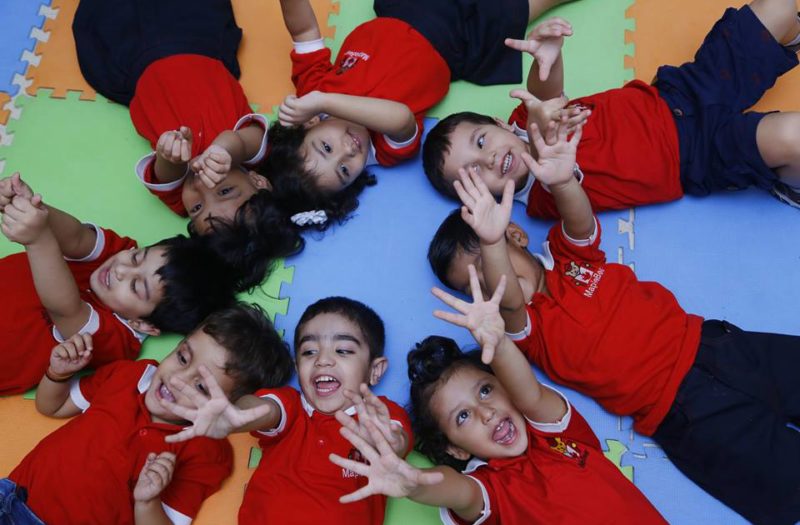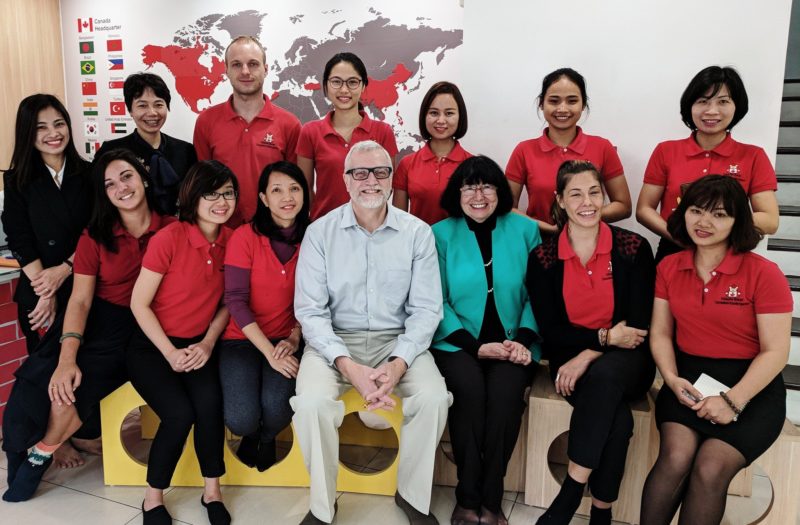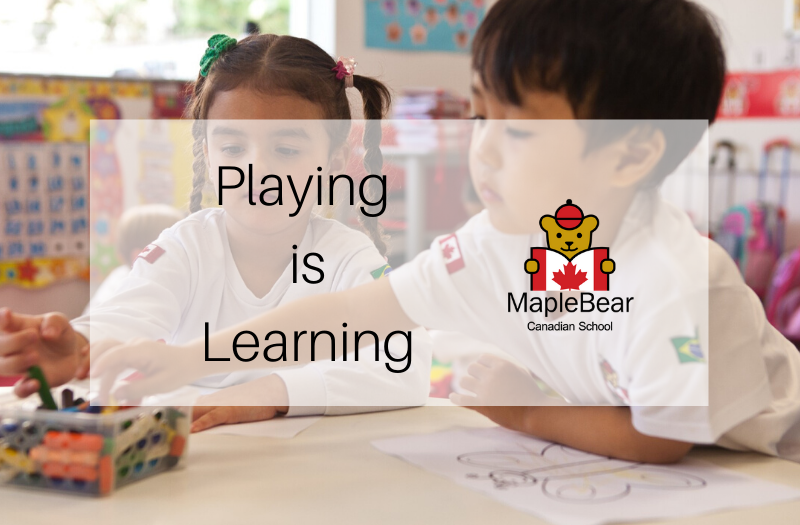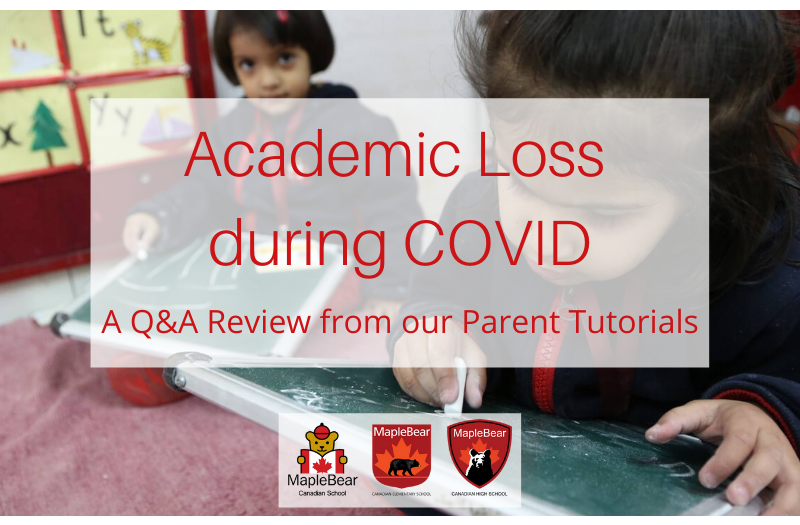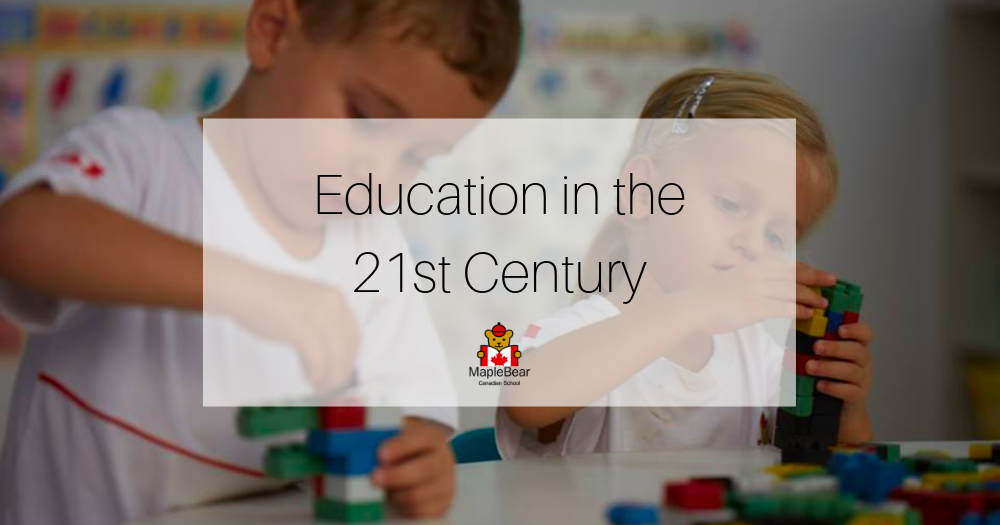
Maple Bear and Our Approach to 21st Century Education
What should education look like for our children today in order to help them prepare for an uncertain, continually changing tomorrow? As a parent, how do I know my children will be able to thrive in the 21st century, in an automated world that is changing at such a fast pace?
The information technology revolution is a challenge for all educational institutions to keep up with and to get clarity on what the impacts will be. We do know that the 21st century is shaping up to be the century of information, innovation, and huge technological advancements. We are witnessing a time of unprecedented speed of social, economic and technological change.
The emphasis in education will shift from delivering the facts to a model that is focused on the development of what is known as “soft” skills. The role of educators is no longer to impart knowledge, facts and figures, but rather, to be facilitators of learning and nurturers of curiosity and inquisitiveness.
The Maple Bear curriculum places a lot of emphasis on reading, mathematics, science and problem solving. And yet, with any and all information available at our fingertips in a matter of seconds, we continue to make sure that our students are equipped with the skills needed to analyze, scrutinize, conceptualize and share solutions that will improve their world.
21st Century Skills Are Soft Skills
The World Economic Forum identifies these skills as key for future generations:
- Critical Thinking
- Complex Problem solving
- Creativity
- Collaboration
- Digital Literacy
Canada is a pioneer among the countries that are adapting their education system to these 21st century skills. Since 1994, the Canadian education system applies a methodology that fully develops the child’s personality – physically and intellectually, emotionally and socially – focusing on enquiry based learning.
The Maple Bear pedagogy is based on discovery, collaboration, experimentation and problem-solving. Traditional teaching methods are replaced by a thought-provoking curriculum that encourages students to explore the environment around them, inspire wonder, and search for answers to questions that are truly relevant to their daily lives. If the subject matter is relevant to a child, the learning process is much easier and concepts are retained.
Playing as Learning is Prep for the 21st Century
At the preschool level, children learn best through sensory experiences based on their curious nature and desire to explore the world. “Learning through play” is one of the many components of the Maple Bear preschool curriculum as it sparks curiosity, initiative and discovery.
Here the preschoolers at Maple Bear Sahastradhara, India play at the pet clinic. They role-play as veterinarians and learn about the pets and their health. This type of play is a wonderful way to express creativity, explore ideas and collaborate.

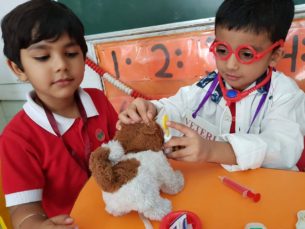
Maple Bear Mogi Takes Money Management to the Market
At Maple Bear Mogi Das Cruzes in Brazil, the Year 3 students take money management education to the next level by making a trip to the supermarket with money they saved over four weeks.
So much learning is covered in this fun, effective exercise. Problem solving and critical thinking are required when taking into consideration shelf life, price points, quantities and, of course, the gap between what you want versus what you can afford. It reflects discovery and collaboration as steps to further understanding the four operations, place value, the concept of money, the purpose of money, the value of money and how to use it wisely.
This lays the groundwork for additional money concepts and technology in the higher grades (eg. What is credit? What are credit and debit cards?).
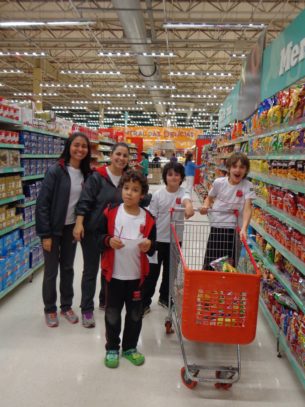

Dali-Inspired Creativity and Digital Literacy
Maple Bear São Luís combined creativity and digital literacy skills in a fun and innovative exercise for the Year 6 students. By integrating technology in their study of the artwork of Dali, art history, and the principles of surrealism, the students created their own masterpieces.
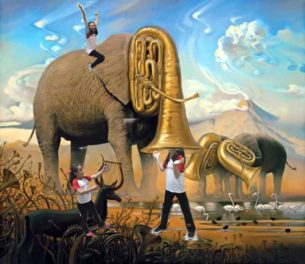
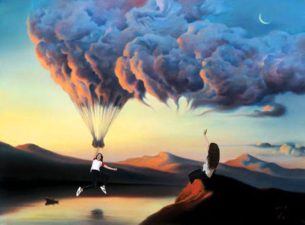
Students Take Control of Their Learning
Students in Maple Bear are encouraged to become independent learners and to take responsibility for their learning. They learn to reflect on their work and set goals to enhance or move their learning forward. We also cultivate an environment of learning that encourages students to make mistakes and learn resilience. Failure and resilience are critical aspects of problem solving.
An education aligned with the requirements of today and the context of tomorrow can prepare our younger generations for the challenges and opportunities of the 21st century. At Maple Bear we continually review and revise our curriculum and methodologies with the latest developments in education. This ensures that our students are well prepared and parents are confident in their future.

